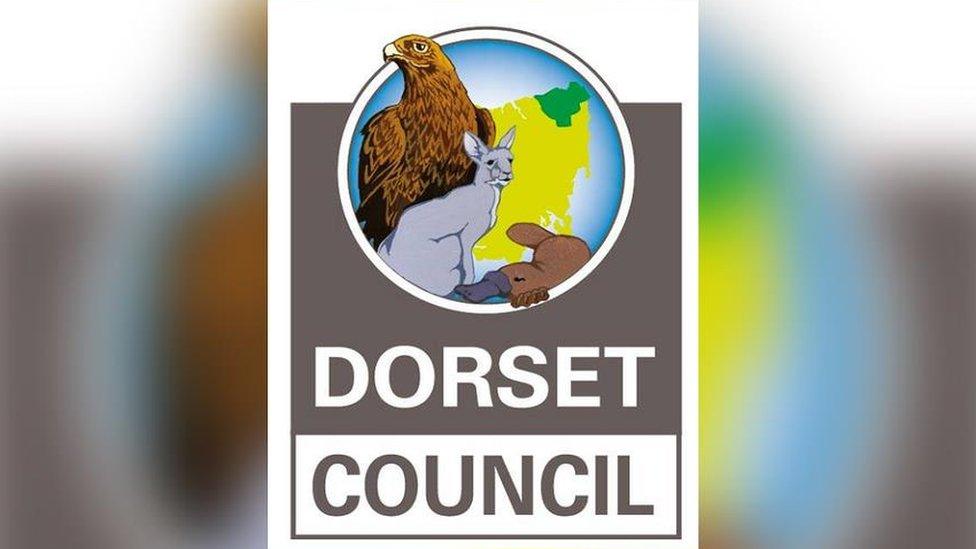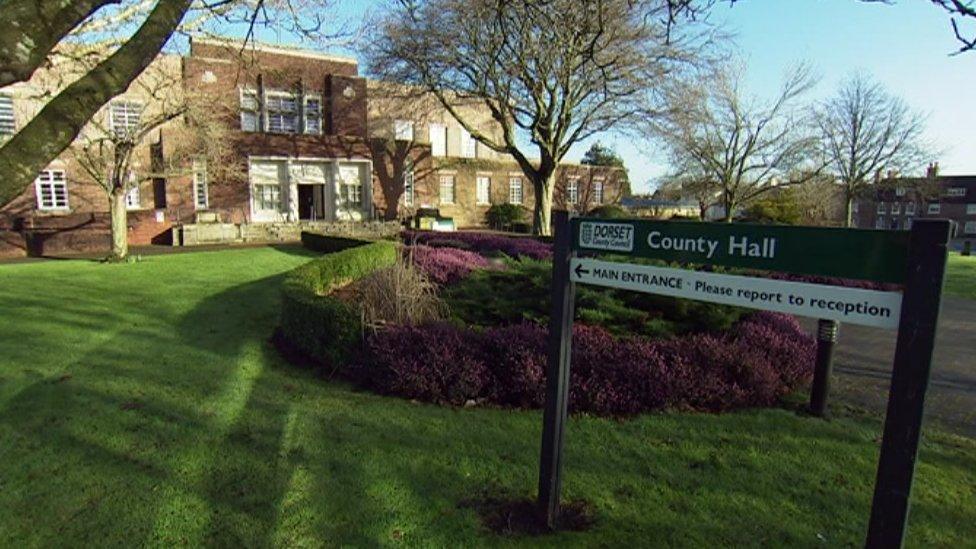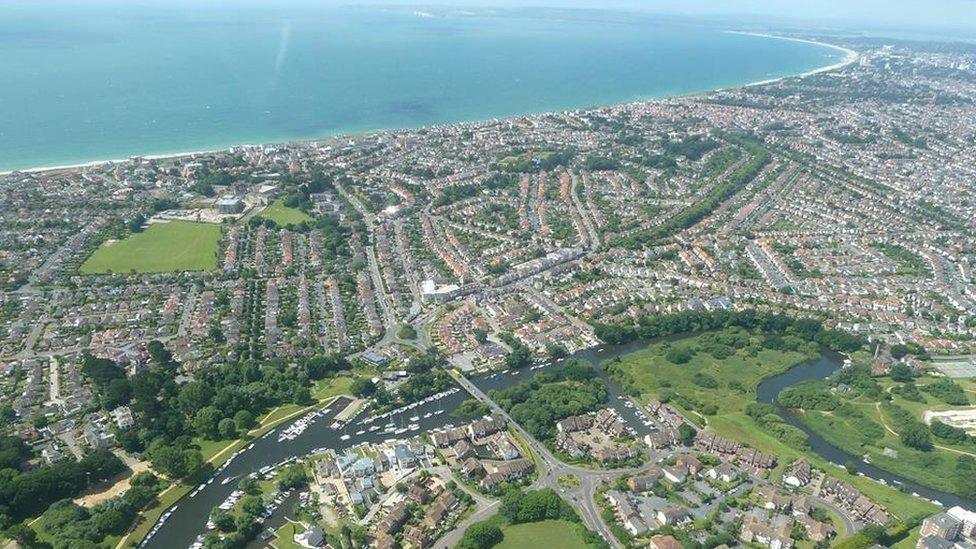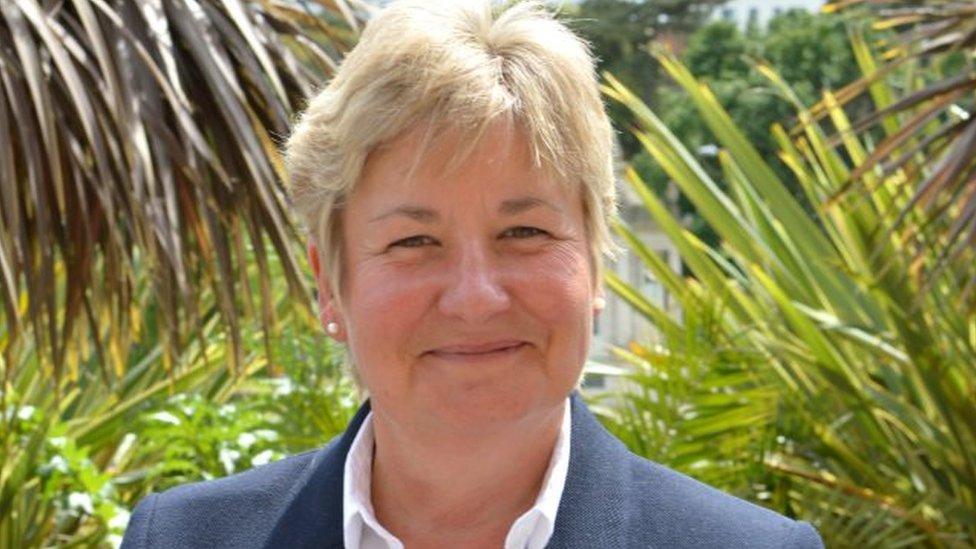Dorset Council merger: Council tax bills to rise
- Published

The new Dorset Council will come into effect on 1 April
Residents in most of the new Dorset Council area will see their council tax bills rise when the new merged authority comes in to effect in April.
The shadow authority's first budget includes the "harmonisation" of council tax bills across the five districts.
Households in North Dorset will be the worst hit with Band D households paying an extra 6.29% - or £96.45 a year.
Only Weymouth and Portland will get reduced bills. The Band D home charge will fall 4.55% - or £77.67 a year.
However, Weymouth residents will also have to pay an additional charge for a newly-formed town council.
The changes will see occupants of Band D properties across the five districts pay £1,629.75.
The shadow authority said the figures did not include the council tax precepts for the police, fire or town and parish councils.
The changes, district by district, are:
East Dorset - increase of £4.75 a year or 0.29%, which works out as 9p more per week.
North Dorset - increase of £96.45 a year or 6.29%, which works out as £1.85 more per week.
Purbeck - increase of £35.55 a year or 2.23%, which works out as 68p more per week.
West Dorset - increase of £78.66 a year or 5.07%, which works out as £1.51 more per week.
Weymouth and Portland - reduction of £77.67 a year or 4.55%, which works out as £1.49 less per week.
The authority said it calculated the new rates by increasing the lowest council tax rate across the area by the maximum allowed.
The shadow authority said it had agreed a balanced first budget of £295m, which would increase funding across a number of areas, including waste services, adult social care and tackling homelessness.
Finance councillor for the shadow authority Tony Ferrari said: "This budget gets our new council off to an excellent start, providing protection for front-line services for residents. This investment would not have been possible without the reorganisation of local councils."
- Published5 February 2019

- Published23 January 2019

- Published18 January 2019

- Published11 January 2019

- Published10 January 2019

- Published8 January 2019
